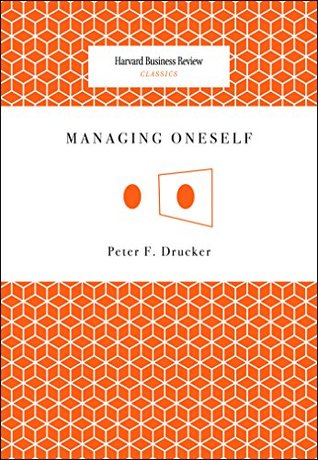More on this book
Community
Kindle Notes & Highlights
Read between
November 6 - November 6, 2017
We will have to learn to develop ourselves. We will have to place ourselves where we can make the greatest contribution. And we will have to stay mentally alert and engaged during a 50-year working life, which means knowing how and when to change the work we do.
The only way to discover your strengths is through feedback analysis. Whenever you make a key decision or take a key action, write down what you expect will happen. Nine or 12 months later, compare the actual results with your expectations.
example, a planner may find that his beautiful plans fail because he does not follow through on them. Like so many brilliant people, he believes that ideas move mountains. But bulldozers move mountains; ideas show where the bulldozers should go to work. This planner will have to learn that the work does not stop when the plan is completed. He must find people to carry out the plan and explain it to them. He must adapt and change it as he puts it into action. And finally, he must decide when to stop pushing the plan.
most teachers and most organizations—concentrate on making incompetent performers into mediocre ones. Energy, resources, and time should go instead to making a competent person into a star performer.
How do I perform? may be an even more important question than What are my strengths?
Few listeners can be made, or can make themselves, into competent readers—and vice versa. The listener who tries to be a reader will, therefore, suffer the fate of Lyndon Johnson, whereas the reader who tries to be a listener will suffer the fate of Dwight Eisenhower. They will not perform or achieve.
Am I a reader or a listener? and How do I learn? are the first questions to ask. But they are by no means the only ones. To manage yourself effectively, you also have to ask, Do I work well with people, or am I a loner? And if you do work well with people, you then must ask, In what relationship?
The king was a notorious womanizer and made it clear what kind of dinner he wanted. The ambassador is reported to have said, “I refuse to see a pimp in the mirror in the morning when I shave.”
Ethics requires that you ask yourself, What kind of person do I want to see in the mirror in the morning? What is ethical behavior in one kind of organization or situation is ethical behavior in another.
To be effective in an organization, a person’s values must be compatible with the organization’s values. They do not need to be the same, but they must be close enough to coexist. Otherwise, the person will not only be frustrated but also will not produce results.
Successful careers are not planned. They develop when people are prepared for opportunities because they know their strengths, their method of work, and their values. Knowing where one belongs can transform an ordinary person—hardworking and competent but otherwise mediocre—into an outstanding performer.
Knowledge workers in particular have to learn to ask a question that has not been asked before: What should my contribution be? To answer it, they must address three distinct elements: What does the situation require? Given my strengths, my way of performing, and my values, how can I make the greatest contribution to what needs to be done? And finally, What results have to be achieved to make a difference?
First, the results should be hard to achieve—they should require “stretching,” to use the current buzzword. But also, they should be within reach. To aim at results that cannot be achieved—or that can be only under the most unlikely circumstances—is not being ambitious; it is being foolish. Second, the results should be meaningful. They should make a difference. Finally, results should be visible and, if at all possible, measurable.
Bosses are neither a title on the organization chart nor a “function.” They are individuals and are entitled to do their work in the way they do it best. It is incumbent on the people who work with them to observe them, to find out how they work, and to adapt themselves to what makes their bosses most effective. This, in fact, is the secret of “managing” the boss.
Each works his or her way, not your way. And each is entitled to work in his or her way. What matters is whether they perform and what their values are.
If the marketing vice president does not understand what these high-grade knowledge specialists are doing, it is primarily their fault, not hers. They have not educated her. Conversely, it is the marketing vice president’s responsibility to make sure that all of her coworkers understand how she looks at marketing: what her goals are, how she works, and what she expects of herself and of each one of them.


